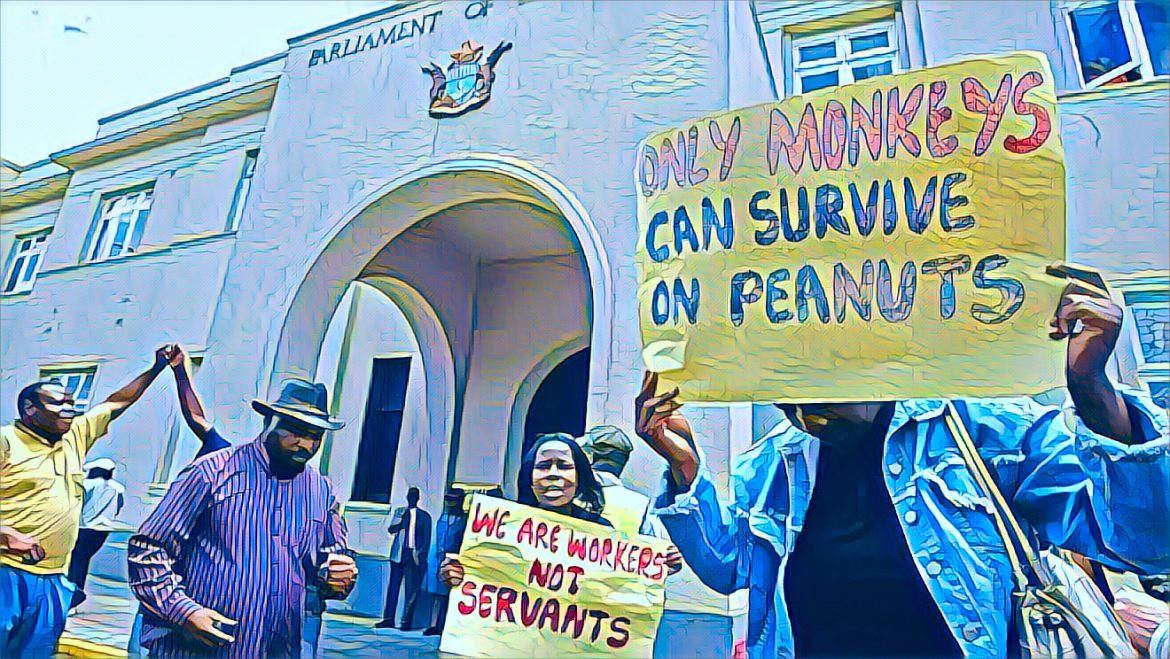The International Labour Organization (ILO) has been consulted by Zimbabwean civil officials on their long-standing complaints about low pay and unfavorable working conditions. They are requesting intervention due to what they perceive to be the government’s harsh handling of their demands. This increase coincides with Zimbabwe’s worsening economic problems, as local salaries that were formerly based on the US currency have been substantially depreciated by inflation.
The argument stemmed from the notable decline in actual earnings that occurred since October 2018, when the government switched from using U.S. dollars to pay salaries to the unstable Zimbabwean currency. The public sector employees claim that this shift has left them in extreme poverty, which has been made worse by hyperinflation, which has almost completely destroyed the value of the local currency.
In a formal complaint submitted to the ILO, the Amalgamated Rural Teachers Union of Zimbabwe (Artuz) listed numerous alleged transgressions of international labor norms. These include, among others, the freedom of association and the ILO Conventions 87 and 98-protected right to organize and demonstrate. The complaint describes how union leaders and members who have organized or taken part in protests have allegedly been harassed, arbitrarily arrested, and legally intimidated.
The complaint lists specific instances such as the government’s refusal to look into security breaches at union offices, criminal charges brought against law-abiding union members as revenge for their legal union operations, and the prohibition on attending public gatherings as a condition of release. Artuz contends that these acts amount to a persistent infringement on their rights to freedom of assembly, expression, and protection from arbitrary arrest.
In recent years, the Zimbabwean government’s response to strikes and protests by civil servants has been marked by a series of punitive measures. Notably, in 2022, several striking teachers were suspended without pay for three months after rejecting a 20% salary increase that they deemed insufficient. The government had also attempted to appease the civil servants with monetary and non-monetary incentives, including a US$100 hard currency allowance and educational benefits for their children.
Under Vice President Constantino Chiwenga and the Health and Child Care Minister, the situation worsened in 2018. The minister fired all protesting nurses, who were later allowed to return to work under strict restrictions that curtailed their right to strike. The ILO received a complaint that stressed the urgent need for international oversight and involvement. It was addressed to Deputy Director Karen Curtis and Chairperson of the Committee on Freedom of Association, Evance Rabban Kaluta.
Due to the economic realities and high cost of living in Zimbabwe, teachers—who are among the most vociferous and impacted by pay issues—are currently calling for a minimum wage of between US$840 and US$1,260. The government’s most recent offer from March, which contained incentives and a US$20 wage raise, was turned down by the teachers as inadequate.


